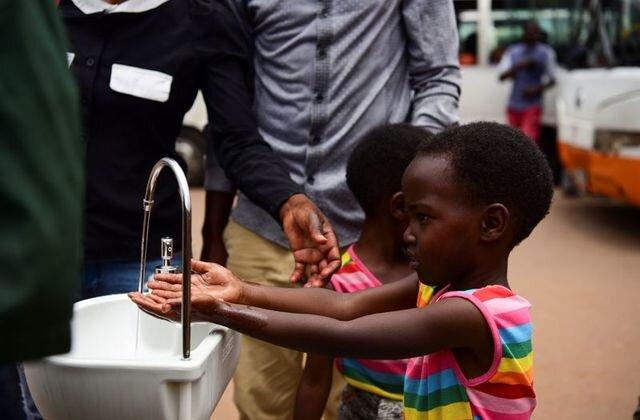Rwanda coronavirus (COVID-19) containment landscape just got stronger as the Executive Board of the International Monetary Fund (IMF) on Thursday approved the disbursement of $109.4 million to be drawn under the Rapid Credit Facility (RCF), IMF statement said.
According to information from the IMF, this will serve to meet Rwanda’s urgent balance of payment needs stemming from the outbreak of the COVID-19 pandemic.
Rwanda is one of the East African nations to be hurt by the pandemic, whereby—COVID-19 cases stand at 84.
The lender noted that the economic impact of the COVID-19 pandemic is rapidly unfolding, with the near-term outlook deteriorating quickly.
According to the IMF statement, the pandemic has triggered a rise to significant fiscal and external financing needs.
Hence, in curbing possible devastating impacts of the outbreak, authorities have acted fast by putting in place measures to help contain and mitigate the spread of the disease.
According to the statement, the RCF funds will support the authorities’ efforts by backstopping the decline in international reserves and providing financing to the budget for increased spending aimed at containing the epidemic and mitigating its economic impact.
Unequivocally, the statement highlighted that the additional financing ought to help catalyze further assistance from the international community, preferably in the form of grants.
Following the Executive Board’s discussion of Rwanda, Mr. Tao Zhang, Deputy Managing Director and Acting Chair weigh into the current COVID-19 containment scenario.
“The COVID-19 Pandemic has ground Rwanda’s economy to a halt, creating an urgent balance of payments need. To contain and mitigate the spread of the virus, the government swiftly implemented measures that have affected all sectors of the economy. With uncertainties surrounding the duration and spread of the pandemic, the economic fallout could intensify further,” he added.
Rwanda was the first country in East Africa to roll in hand-washing practices at bus-stops, a habit that other East African nation’s including Tanzania adopted.
However, he also stressed on several key issues, saying “Monetary policy needs to be data-driven and the central bank should stand ready to provide additional liquidity support if warranted. A flexible exchange rate should be maintained as a shock absorber. (lymangolf.com) The National Bank of Rwanda has taken various measures to help maintain the health of the financial sector and should continue to show flexibility while encouraging prudent loan restructuring and stepping up reporting requirements,”
At the moment Rwanda is executing mandatory lockdown which will remain until April 19 to downplay the spread of the coronavirus.
“Additional donor support is critical to close the remaining financing gap, ease the adjustment burden, and preserve Rwanda’s development gains over the last two decades,” he added.
The IMF continues to monitor Rwanda’s situation closely and stands ready to provide policy advice and further support as needed.
READ:East African markets in the time for Coronavirus
